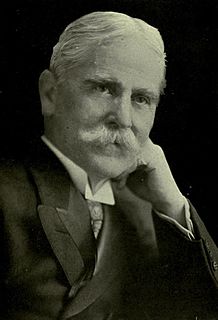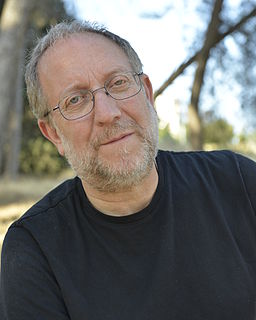A Quote by Sri Nisargadatta Maharaj
Love is not selective, desire is selective. In love there are no strangers. When the centre of selfishness is no longer, all desires for pleasure and fear of pain cease; one is no longer interested in being happy; beyond happiness there is pure intensity, inexhaustible energy, the ecstasy of giving from a perennial source.
Related Quotes
Love is the wanting, and the having, and the choosing, and the becoming. Love is the desire to see the person we love be and become all he or she is capable of being and becoming. Love is a willingness to lay down our own personal plans, desires, and agenda for the good of the relationship. Love is delayed gratification, pleasure, and pain. Love is being able to live and thrive apart, but choosing to be together.
Increase and widen your desires till nothing but reality can fulfill them. It is not desire that is wrong, but its narrowness and smallness. Desire is devotion. By all means be devoted to the real, the infinite, the eternal heart of being. Transform desire into love. All you want is to be happy. All your desires, whatever they may be are expressions of your longing for happiness.
Modernity is a desert, and we are jungle monkeys. And so new evolutionary selective pressures are coming to bear upon the human situation, new ideas are coming to the fore. Psilocybin is a selective filter for this. The wish to go to space is a selective filter for this. Just the wish to know your own mind is a selective filter for this.
Pure love removes all negative feelings. Destroying all selfishness, it expects nothing but gives anything. Pure love is a constant giving up- giving up of everything that belongs to you. What really belongs to you? Only the ego. Love consumes in its flames all preconceived ideas, prejudices and judgments, all those things which stem from the ego. Pure love is nothing but the emptying of the mind of all its fears and the tearing off of all masks. It exposes the Self as it is.
What is required is the finding of that Immovable Point within one's self, which is not shaken by any of those tempests which the Buddhists call 'the eight karmic winds': 1-fear of pain, 2-desire for pleasure; 3-fear of loss; 4-desire for gain; 5-fear of blame, 6-desire for praise; 7-fear of disgrace; [and] 8-desire for fame.
But theological change happens though selective quoting. Every religious person does it: You quote those verses that resonate with your own religious insights and ignore or reinterpret those that undermine your certainties. Selective quoting isn't just legitimate, but essential: Religions evolve through shifts in selective quoting.






































